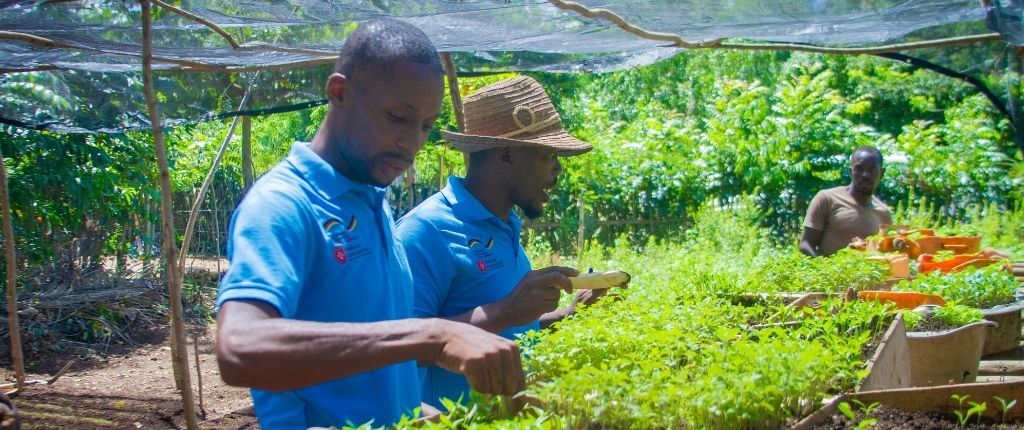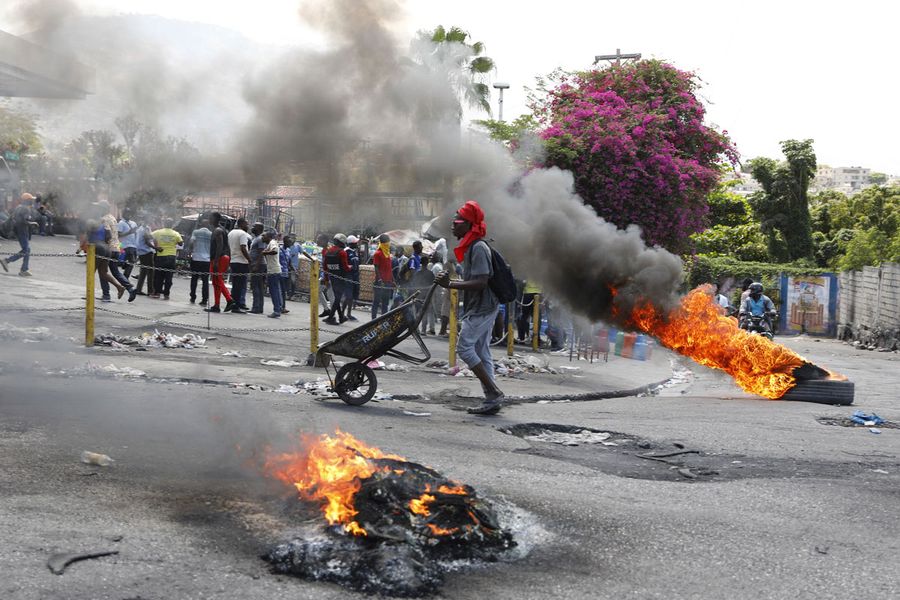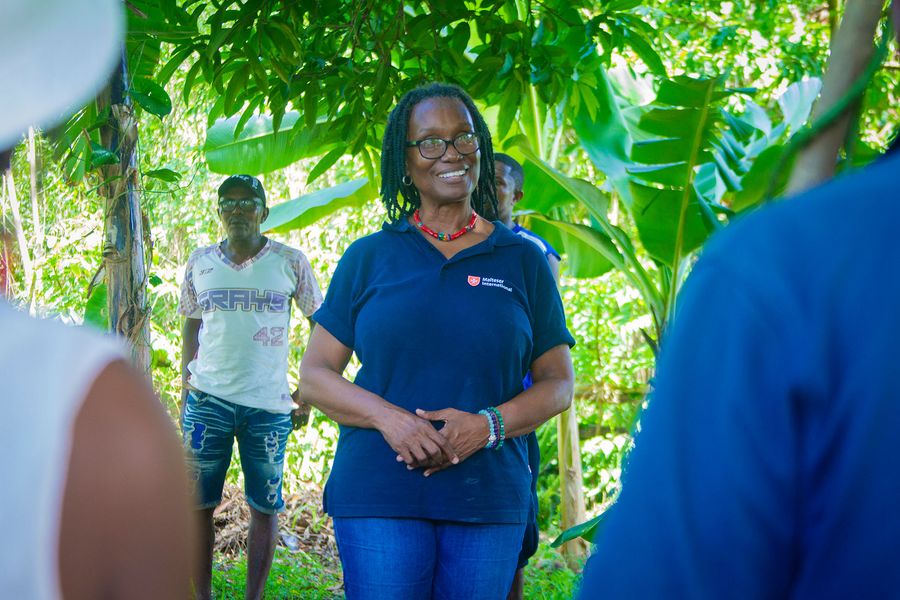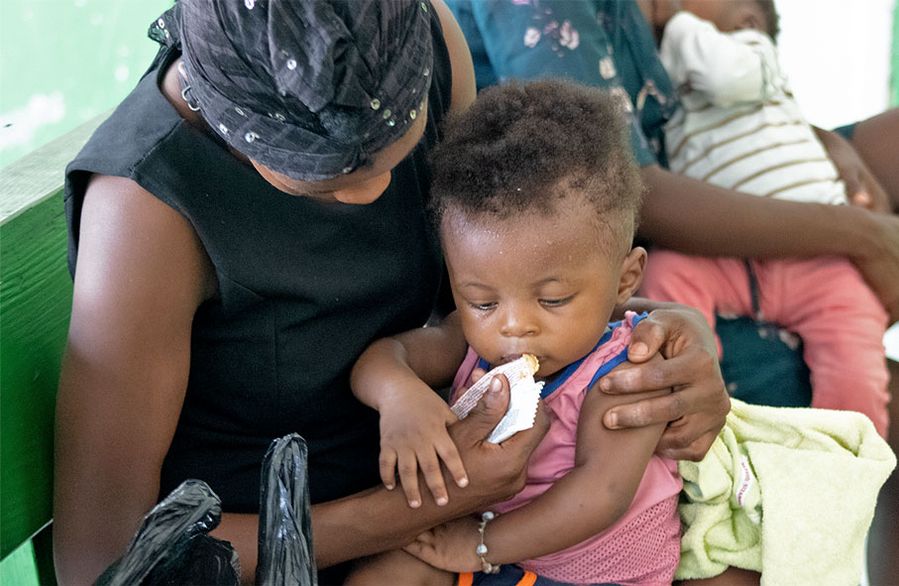
Her love makes her strong - Our program coordinator in Haiti reports

Yolette Etienne’s voice falters for a moment. Normally calm and composed when speaking about her work for Malteser International in Haiti, she breaks into tears as she recounts a gang attack on the town of Kenscoff. At the end of January, gangs surrounded the town near the capital, Port-au-Prince. For several days, they roamed the streets, shooting and setting fires.
“A two-year-old baby burned to death in the flames,” Etienne says. Fifty people were killed in the attack, and hundreds were driven from their homes. It’s just one of many examples of the violence and suffering in Haiti. Since the assassination of President Jovenel Moïse in 2021, gangs have been gaining power. More than 200 violent groups now compete for influence, money, and resources across the country. They control 85 percent of Port-au-Prince. Haiti lacks a functioning government, a reliable police force, and an organized healthcare system.
Yolette Etienne, a Haitian herself, has worked as a program coordinator for Malteser International since 2010. She faces violence daily, witnesses the poverty and suffering of the people, and experiences the decline of her homeland firsthand. And yet, she stays. “I love this country. It’s my home, filled with wonderful, good, and courageous people. Leaving would be a shame,” she says. “I do my best to survive here and to protect myself and my colleagues so we can help others.”
“I hope people are praying for us in Haiti.”

Malteser International focuses its efforts in Haiti’s rural areas, where many are fleeing from the capital in search of safety. “We thought 2024 was bad, but 2025 will be even worse,” says Etienne. One million people are already displaced, and forecasts predict another 500,000 will flee this year. That number had already been reached by the end of February, she notes. The displaced have no shelter or income. Some stay with relatives.
The organization supports five health centers and runs projects for vegetable and fruit cultivation, sheep and goat farming, and provides emergency cash assistance. Its main focus is the Nippes region, where it aims to help people build independent lives. But Etienne has noticed a troubling trend: more and more malnourished children are arriving at the health centers. “The nutritional situation is worsening,” she says. Cyclones, droughts, and heavy rains are destroying harvests, and yields are no longer enough to feed rural communities.
The organization lacks the donations needed to expand its projects. Last year, Malteser International had to cease operations in the Cite Soleil slum of the capital. The reasons were twofold: a lack of funding and, more critically, the growing danger. “The gangs kill and destroy indiscriminately,” says Etienne. “They claim to support the poor, but they destroy their neighborhoods. Most recently, they attacked a hospital that primarily served the poor. In a school for underprivileged children, a boy was fatally shot in his classroom. Anyone can become a victim.”
Helping under constant threat

Despite the danger, Etienne continues to live and work in Port-au-Prince. She and her team of eight manage the country office, coordinate projects, and distribute aid. In the city, she takes precautions. “If we hear gangs are active nearby, we stay indoors,” she says. She never travels by car—only by motorcycle, which makes it easier to escape if needed.
Through their work, the aid workers challenge the gangs’ influence. The gangs lure children and youth with food and games. “But we want to support parents in feeding their children properly and sending them to school,” Etienne explains. “We tell the young people: You won’t live long in a gang.” Catholic priests and bishops also try to counter the gangs’ power. “But that’s dangerous. If you speak out, you become a target,” she adds.
Despite the catastrophic situation, Etienne hasn’t lost hope. “I’m a realist, but also an optimist,” she says with a laugh. “It saddens me to see what we’re doing to each other. But it can’t go on like this forever. I’m sure my country will overcome this one day.” Yolette Etienne calls for global solidarity: “I don’t just see the suffering in my own country. I know what’s happening in Syria and Gaza. I pray for the people there. And I hope others will pray for us in Haiti.”
This article was written by Kerstin Ostendorf and appeared in the magazine of the diocesan press in May 2025.








